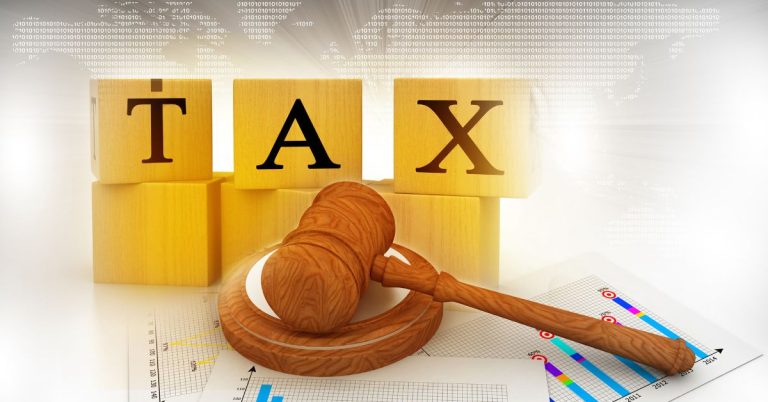How to Form a Business Partnership: A Detailed Guide
Partnerships are usually used for businesses where there is no interest in setting up a limited liability company. They’re also popular for sole traders, freelancers and those working out of home offices. A partnership doesn’t have shareholders, directors or employees, but it does have partners. You’ll need to register your partnership with HM Revenue & Customs if you want to claim tax relief.
Nominated partners are responsible for registering your partnership with HMRC. This includes filing annual returns and paying quarterly fees. If one partner withdraws, the remaining partners continue to pay taxes and penalties.
Limited companies offer additional benefits over a partnership. These include a much lower capital requirement, increased flexibility, and greater protection against personal liabilities. There are several different types of limited company, including LLP, PLC and LTD. Each type offers specific advantages and disadvantages.
As a partnership, there are less legal requirements than a limited company. However, you do still need to provide proof of identity, address and bank account details. In addition, you’ll need to appoint a registered office and keep records of meetings and minutes.
A partnership doesn’t require Companies House registration. Instead, each partner files his or her own individual return. This makes things simpler because you won’t need to deal with Companies House.
In contrast, a limited company requires Companies House registration. Once registered, the company needs to file accounts every year with HM Revenue & Customs (HMRC).
You’ll need to file accounts every year regardless of whether you’ve been trading for a long time or just starting out. Accountants can help prepare your accounts and submit them free of charge.
If you decide to go down the limited company route, make sure you choose the correct structure. For example, an LLP isn’t suitable for sole traders. Likewise, a PLC is best suited to larger businesses. An LTD is designed for smaller businesses.
Partnerships – Tax matters
A partnership is a legal entity used to hold property or carry out activities together. A partnership is different from a company because it does not have shareholders. Instead, each member owns shares in the profits and losses of the partnership.
Each partner needs to file an Individual Return. This includes partners who are self-employed. If you are a sole trader, you do not need to register with HM Revenue & Customs (HMRC). However, you still need to file an Individual Income tax return. You cannot use a partnership to avoid paying income tax.
All partnerships must file an Annual Return. This is done every April 30th. It covers the previous calendar year. It includes information about how much profit the partnership had during the year, what taxes were paid, and what deductions were taken against taxable income.
The most common type of partnership is a limited liability partnership. Limited liability partnerships are formed to raise money for investments. They offer limited liability protection to investors. This means that if something goes wrong, the investor is protected from being sued personally.
Partnerships – Legal issues
A partnership is a legal entity that exists independently of its partners. This means it can sue and be sued in its own name. You cannot do anything without the consent of each partner. If one partner wants out, he or she must give notice to the others.
The law requires partnerships to be registered with HMRC. However, there are no penalties for failing to register. There are two types of partnership: general and limited.
General partnerships are those where all members contribute equally towards the running costs of the partnership. For example, a group of friends might form a general partnership to buy a house together. Each member contributes £10,000 to the purchase price, plus another £5,000 for the deposit. Once the property is bought, the money is split up evenly among the members.
Limited partnerships are those where some members contribute more than others. For example, a partnership might be set up to run a restaurant. One person pays £50,000 into the partnership, while the rest pay £25,000 each. The profits from the restaurant go to the people who put up most of the capital.
You can choose whether to make a general or limited partnership. Limited partnerships are often used for commercial purposes because they allow companies to raise finance privately. They are also useful for buying shares in a company.
If you want to start a partnership, you need a written agreement. This sets out how the partnership will operate and what happens if someone leaves.
HMRC has published guidance about partnerships.
Partnerships – Choosing a business name
Choosing a business name is one of the most important decisions you make when starting up a new business. You want something catchy, memorable, easy to spell and pronounce, and unique enough to avoid confusion with existing businesses. But it’s not just about choosing a good name; you also need to consider how your chosen name might affect your brand identity.
There are three main types of names that you should think carefully about before deciding on yours: descriptive, generic and trademarked.
Descriptive Names
A descriptive name describes what your business does. For example, ‘The Best Hair Salon In Town’ is a great name because it tells people exactly what your salon offers. However, it’s not very original, and there are already plenty of hair salons around. So, unless you plan to open another salon somewhere else, it’s probably best to go for a different name.
Generic Names
A generic name doesn’t describe anything specific about your product or service. Instead, it gives no clue as to what your business actually does. So, for example, ‘Best Pet Grooming Service’ isn’t a particularly useful name either. There are many pet grooming services around, so you need to find something that stands out.
More assistance on the various business models
A sole trader is someone who owns a business and does everything himself or herself. He or she might work alone or hire some people to do certain tasks. However, there are many advantages to setting up a limited company over being self employed. Here are three reasons why you should consider becoming a Limited Company.
1. You’ll Get Tax Relief
As a sole trader, you’re responsible for paying income tax yourself. If you pay too much, it could mean losing out on government funding. But if you become a Limited Company, you won’t have to worry about paying tax because HM Revenue & Customs (HMRC) will take care of it. This means you’ll save money on tax bills.
2. Your Business Will Be More Secure
If you run your business as a Limited Company, you’ll be able to protect your assets better. When you set up a Limited Company, you must appoint directors. These are people who oversee the day-to-day operations of the business. They make sure things run smoothly and keep an eye on how things are progressing. As long as you’ve got good directors, your business will be safer.
3. You Can Grow Without Being Overwhelmed
When you start off as a Sole Trader, you’ll probably find it difficult to expand your business. To grow, you’ll need to recruit more employees, buy more equipment, rent office space and so on. All of these things require cash, which you’ll have to raise from investors. And raising cash isn’t always straightforward. With a Limited Company, however, you don’t have to worry about expanding. You can just focus on growing your existing business.

Other ways to register
Registering your partnership allows you to complete the Self Assessment Online. You’ll receive an email letting you know how much you owe. You don’t have to make a payment until April 30th. If you’re already registered, you won’t see anything different.
Registering for VAT
VAT stands for Value Added Tax. In the UK, it is charged on most goods and services sold within the European Union. If you’re selling products online, registering for VAT is simple. All you have to do is register for VAT with HM Revenue & Customs (HMRC). Once registered, you’ll receive a unique reference number called a VAT registration number. This allows you to charge customers VAT while keeping track of what you owe.
You don’t have to pay anything until you make a profit. When calculating your profits, there are three main methods:
• Gross Profit Margin – Calculate how much money you earn over the cost of producing the product.
• Net Profit Margin – Calculated by subtracting costs from sales revenue.
• Average Cost Per Sale – A combination of both gross and net margins.
There are different ways to calculate each method. For example, average cost per sale includes the price of the item plus shipping and handling fees. With some items, like books, you might include the cover price and postage.
If you sell multiple products, you can combine all your calculations into one spreadsheet, making it easier to keep track of your expenses and profits.
Frequently Asked Questions
What is profit-sharing in a business?
In a business partnership, it is important to know what to do about profit sharing. This is especially true if one partner owns a larger portion of the business than another. In some cases, there are no rules about how to handle profit sharing. For example, you might want to keep things simple and just split everything 50/50. But, if you don’t have an even partnership, you may want to consider setting up a profit-sharing plan.
What is a good profit-sharing percentage?
There is a 50/50 partnership or a 70/30 partnership. However, while those numbers seem like easy answers, it doesn’t always mean that a 50/50 partnership is best for every business.






